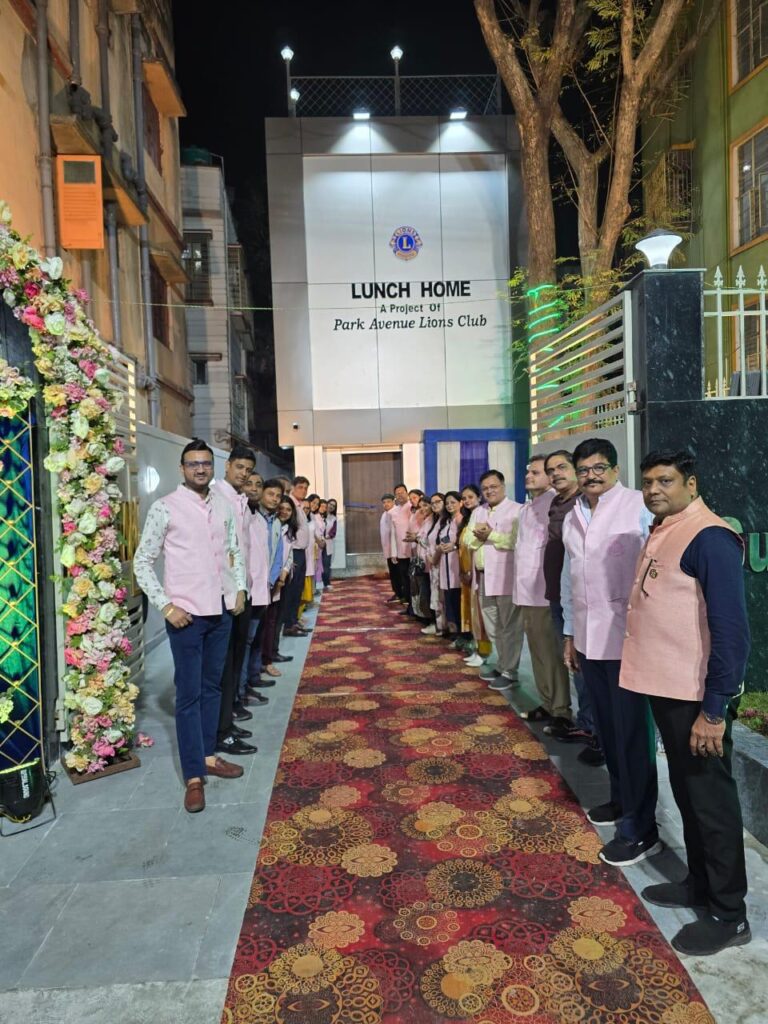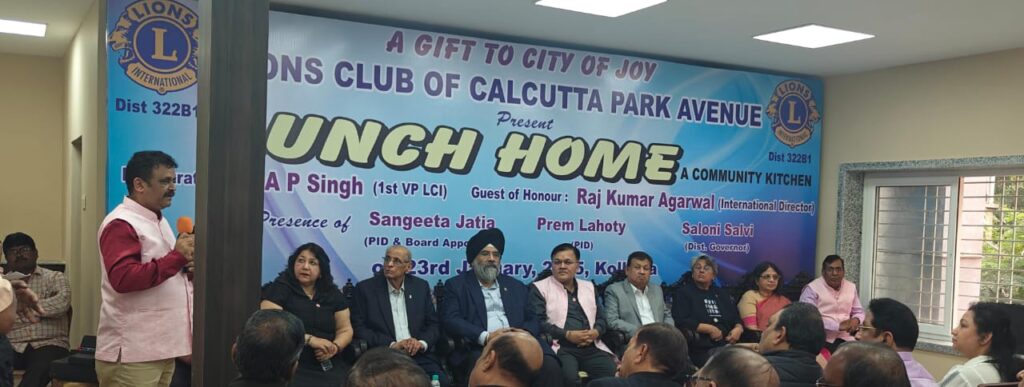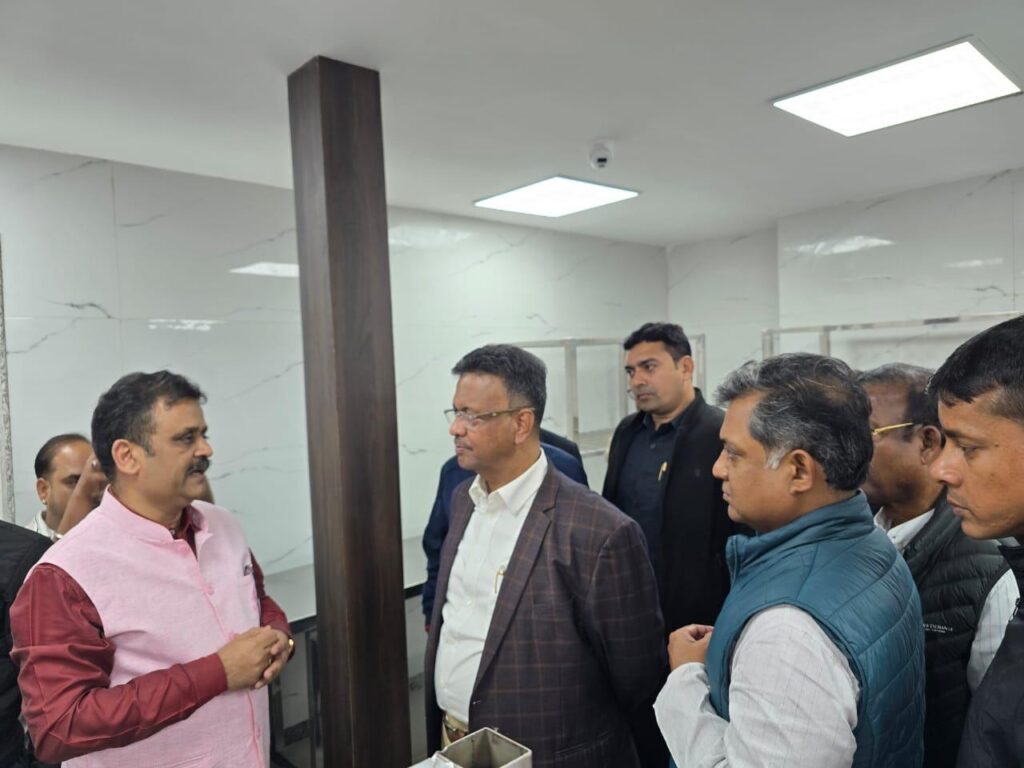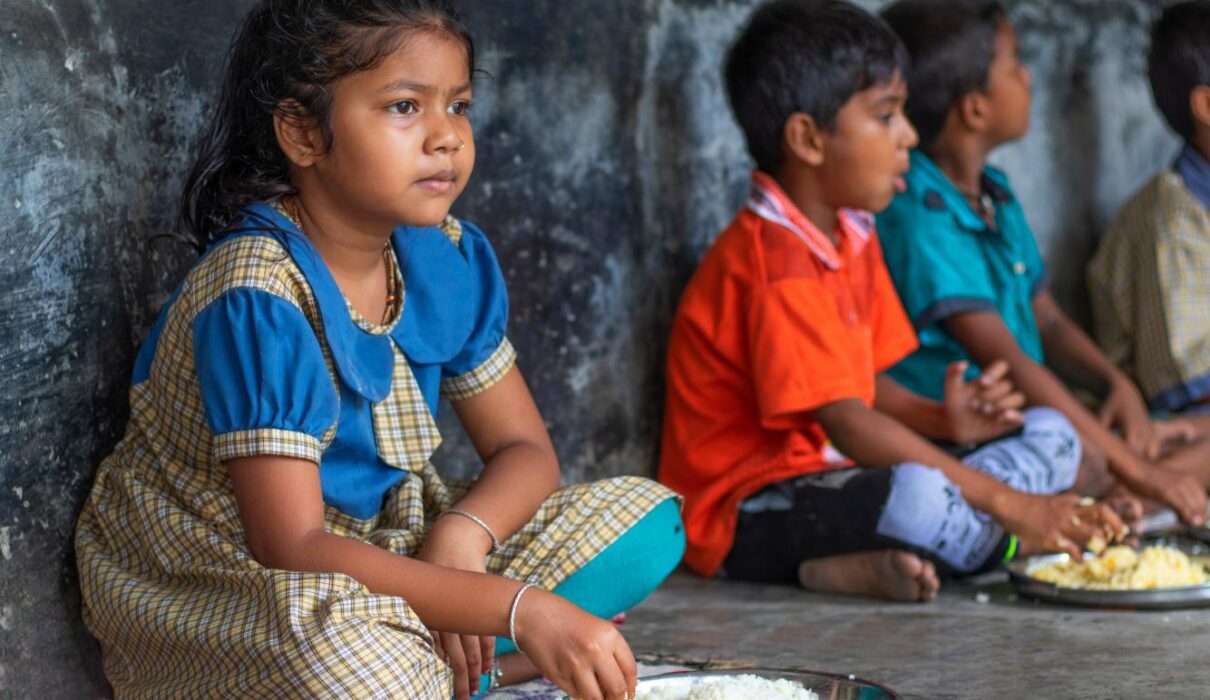
The aroma of freshly cooked dal and rice wafts through the air as ten-year-old Riya waits expectantly for her lunch. Just three months ago, she would often come to school with an empty stomach, her concentration fading by midday. Now, she smiles as she takes her first bite of a nourishing meal served piping hot by Calcutta Park Avenue Lions Club of District 322B1.
The club’s recently inaugurated permanent project – a community kitchen in Kolkata – aims to provide free mid-day meals to students of Government schools and the community at large, with the support of Kolkata Municipal Corporation. The Lunch Home project is part of a broader initiative to support children’s health and education and address food insecurity. Equipped with an automated kitchen, the Lunch Home has the capacity to prepare 3,000 meals each day.


With technology and compassion working in perfect harmony, the Lunch Home uses locally sourced vegetables, lentils, and grains to prepare wholesome meals, carefully planned with help from nutritionists. By mid-morning, the food van bearing the Lions emblem navigates Kolkata’s lanes to reach government schools where children like Riya gather eagerly.
The Lunch Home was inaugurated by International First Vice President A.P. Singh in the presence of International Director Raj Kumar Agarwal, Board Appointee PID Sangeeta Jatia, PID Prem Lahoty, District Governor Saloni Salvi and several other dignitaries. Mayor of Kolkata Firhad Hakim, MLA Swarna Kamal Saha and Councillor Sandeepan Saha were also present on the occasion.

Project Highlights
- Automated kitchen. Everything from ingredient preparation to cooking is done by machines, ensuring hygienic food without human handling.
- Nutritionist-designed meals that meet children's dietary requirements.
- Sustainable practices using locally sourced ingredients to support regional agriculture and reduce food waste.
- Cost-effective operation through energy and resource optimization.
- Zero financial burden on students or families.
- Scalable and Easily Replicable. The proven Lunch Home model can be quickly implemented in new schools and regions, multiplying the number of students who receive nutritious mid-day meals.
Commending the club for this much-needed project, International First Vice President A.P. Singh mentioned in a social media post: “We are proud of such a wonderful club; as they were going through the process of establishing such a project, the club’s membership grew from 48 to 97, more than 100% growth; it is a clear indicator that new members join where service is evident.”
“What makes Lunch Home special isn’t just the technology or scale,” said District Governor Saloni Salvi, discussing the project made possible by an LCIF Hunger Grant. “It’s how the community has embraced it. Local farmers provide ingredients, volunteers assist with distribution, and parents serve as our eyes and ears, ensuring we’re meeting children’s needs.”
The impact is evident in classrooms across the city as children, no longer distracted by hunger, can better focus on their studies. Parents who once worried about providing midday meals now have one less burden to bear. Teachers report improved attendance.
For Riya and hundreds like her, Lunch Home means more than just food. It represents concentration for studies, energy for play, and the knowledge that someone cared enough to ensure she never learned on an empty stomach again.


